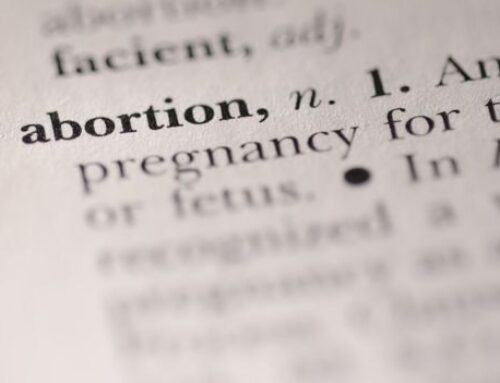We risk creating an Orwellian thought police
Britain and the U.S. are forgetting that censorship is never the right answer to disinformation
Monday, May 09, 2022
By Melanie Phillips
Reprinted from The Times [London]
Everyone knows about fake news, or the substitution of propaganda for information. Everyone also knows that there is much harmful material online which targets and preys upon vulnerable people.
There is, however, no general agreement on what constitutes such harm or fake information. So attempts to combat these developments are not only difficult but may end up doing even more harm than they aim to prevent.
In Britain, the Online Safety Bill going through parliament is designed to deal with bad stuff such as promotional terrorist videos, images of child abuse or sites encouraging suicide that online platforms have failed to curb. There are, however, concerns that the bill’s category of “material risk of significant harms” is subjective and open to abuse. Harm perceived by one individual may be seen by another as unobjectionable or even necessary.
Yet the internet is now also a vehicle of information warfare used by tyrants and aggressors to suppress their own populations or pursue the conquest of others. So there’s a legitimate role for security agencies to tackle this threat. Last year, GCHQ published a paper detailing how analysts could protect the U.K. from a range of attacks, including state-backed disinformation campaigns.
The intelligence agency’s agenda included “fact-checking and detecting deepfake media to tackle foreign state disinformation”. This included false claims about Covid-19 and vaccine safety, a high proportion of which are said to be produced by Russia.
However, one Whitehall source emphasised that GCHQ only had permission to tackle disinformation originating from state adversaries, not to disrupt online content written by ordinary citizens: “You wouldn’t get authorisation to go after cranks. People have a right to say batshit stuff online.”
Here, though, lies the danger. For in the US, the Biden administration appears to have blurred the line between genuine security threats and political or social differences by creating a “Disinformation Governance Board”.
The homeland security secretary, Alejandro Mayorkas, has claimed this will only tackle falsehoods that threaten national security, such as disinformation from Russia and China or the cartels smuggling migrants into the United States. Yet the woman who has been appointed director of this board, Nina Jankowicz, appears to have a somewhat different understanding of the meaning of “disinformation”.
Emails about alleged Biden family corruption, found on the laptop of the president’s son, Hunter, were recently acknowledged as genuine even by media outlets that had suppressed this scandal. Yet Jankowicz had claimed these should be considered “a Trump campaign product”. She also repeatedly shared the now debunked claims about Trump-Russia collusion in 2016, including material that has been revealed by John Durham, the special counsel investigating these claims, to have been Democrat-backed disinformation.
Last year, Jankowicz led a team behind a report on the “impacts of gendered and sexualised disinformation on women in public life” that appear on social media. This report criticised such platforms for “a lack of intersectional expertise in content moderation, which results in abuse toward women, people of colour and other marginalised communities going unaddressed”. Social media companies, it said, “should create a cross-platform consortium to track and respond to online misogyny, similar to existing consortiums which counter terrorism and extremism”.
Jankowicz, who appears to be a cross between Madame Mao and Bette Midler, can also be seen on TikTok singing about “information laundering”, taking aim at Rudy Giuliani, Covid-sceptics and those “saying lies in Congress” to the tune of the Mary Poppins song Supercalifragilisticexpialidocious.
The creation of this board has been greeted by a chorus of horror and ridicule, with predictable references to the thought police in George Orwell’s Nineteen Eighty-Four. The chilling premise of these arbiters of public discourse is that those who police disinformation are themselves the providers of truth.
Freedom of information is not an absolute. Real harm should be avoided. But in a free and democratic society, proscribed expression must be limited to boundaries agreed by that society. That means expression which is unlawful, either because it is itself criminal or because it incites others to commit a crime.
One of the problems with the Online Safety Bill is the introduction of a “legal but harmful” category for the removal of content. This will create a situation in which people will be prevented from saying things that are legal but prohibited.
This threatens to become the online equivalent of the “non-crime hate incidents” invented by the College of Policing in its genuflection to identity politics. This helped turn the police from crime-fighters into a force for coercive social control, before the Court of Appeal ruled last year that “non-crime hate incidents” were an “interference with freedom of expression”.
The line between freedom of expression and freedom from harm is blurry and divisive. Where that line is drawn is a boundary that should result from a process involving the whole community through laws passed by its representatives.
The best antidote to rotten information is not to suppress it but to provide better information. Truth is discovered by opening up legally permitted discourse, not limiting it. Censorship is never the answer.



![Complete In Prayer: Jack Hibbs on Spiritual Warfare [This completes the series]](https://acrookedpath.com/wp-content/uploads/2024/04/0-71-500x383.jpg)




Leave a Reply, please --- thank you.